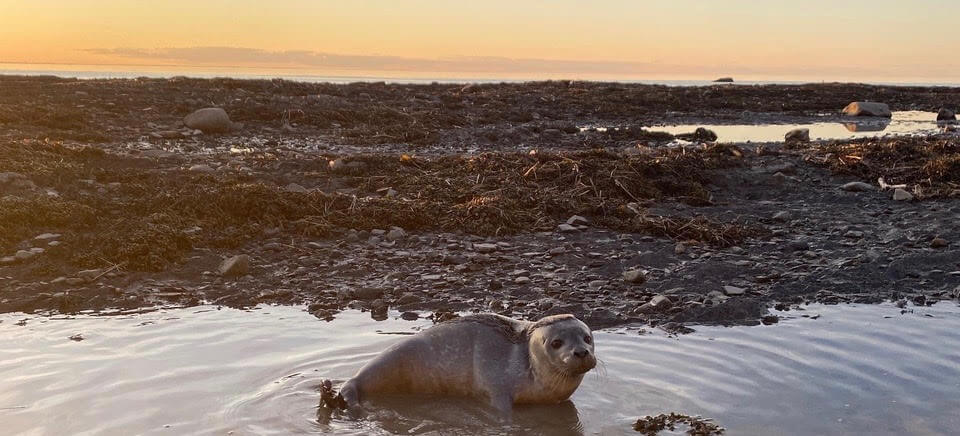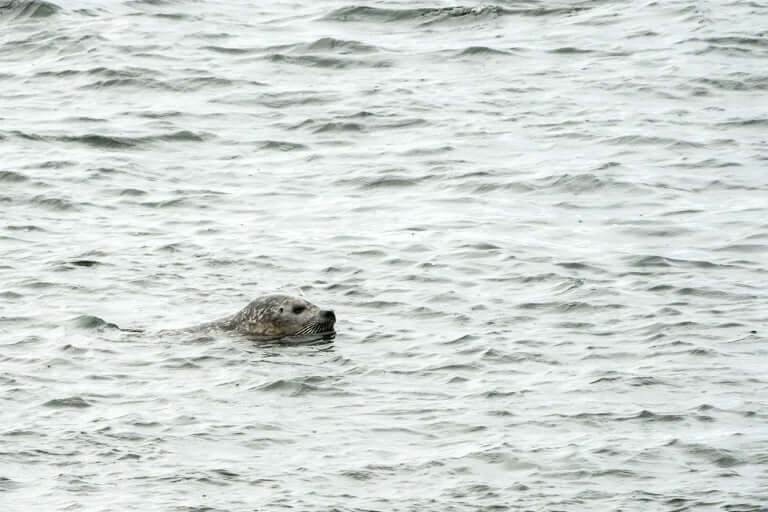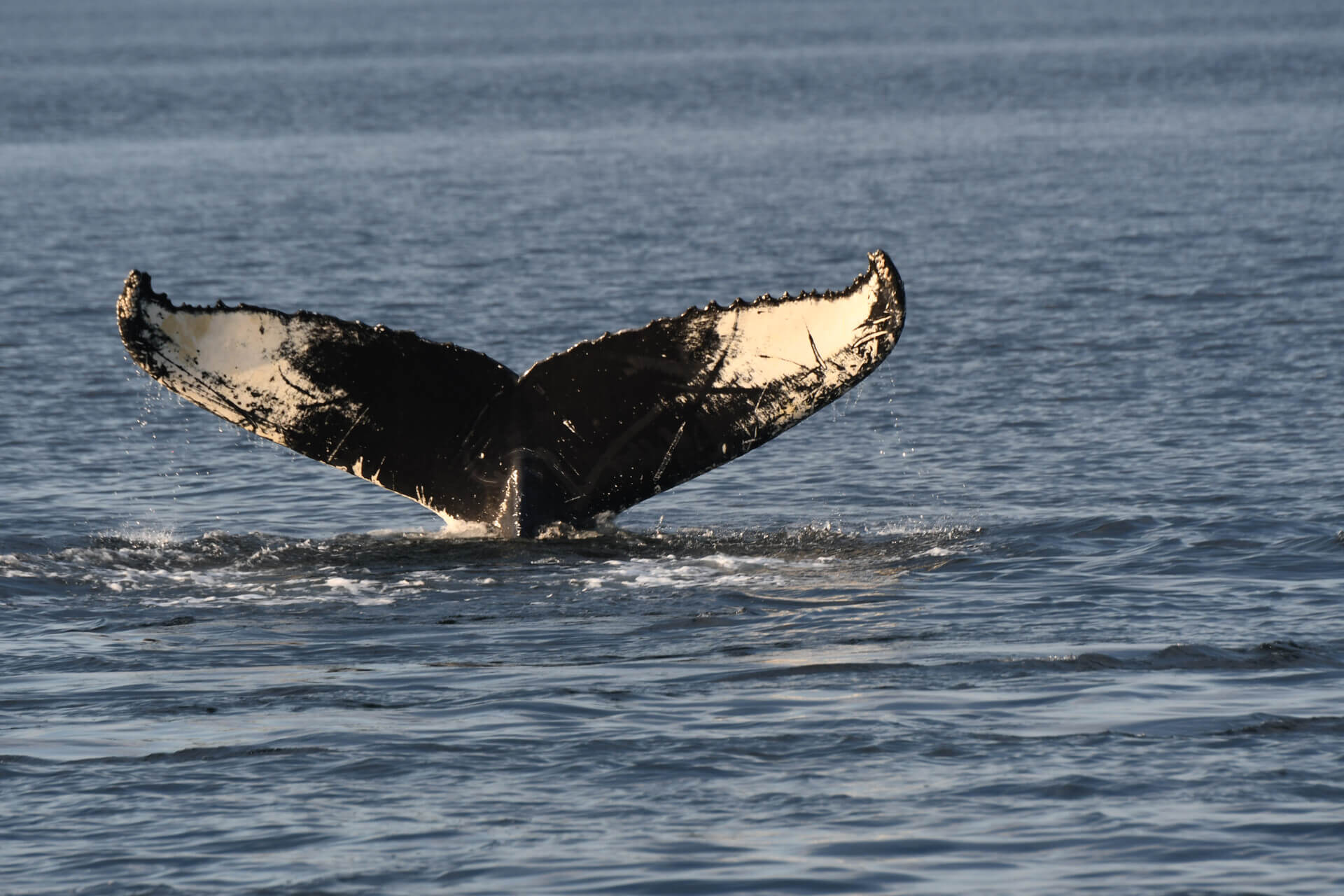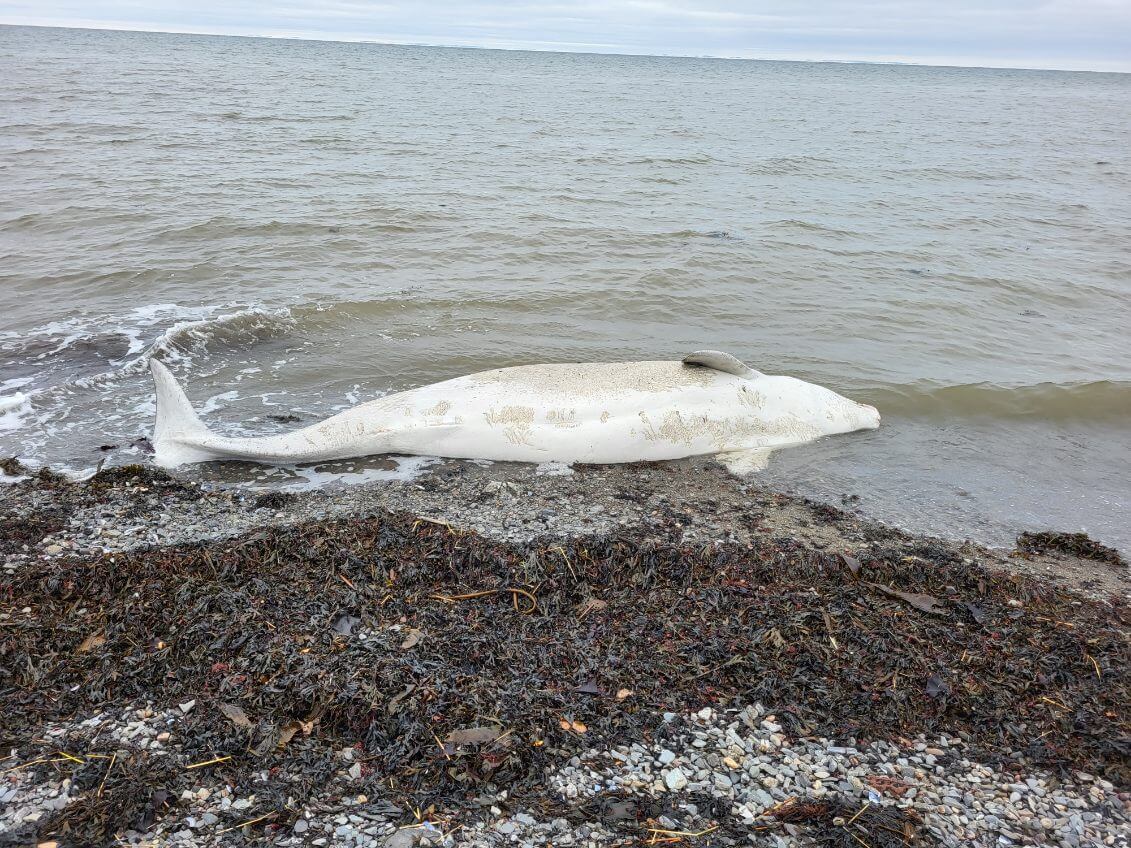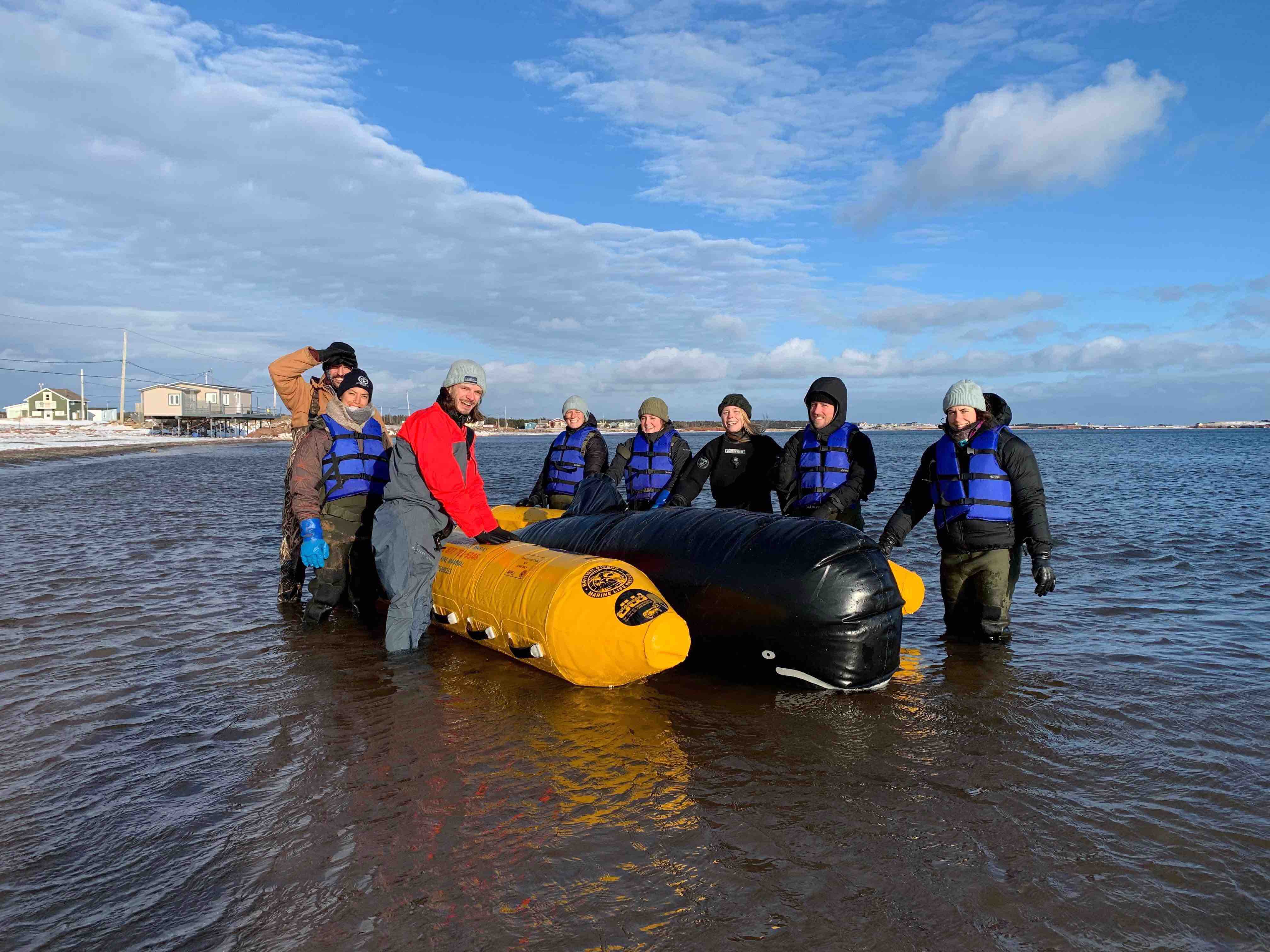Spring is here and the seal pupping season is in full swing. The Quebec Marine Mammal Emergency Response Network (QMMERN) has been receiving quite a few calls for pinnipeds. There’s a baby seal on the beach! What to do?
Alone on the sand, eyes in the water
In late May and June, harbour seals give birth and it is not uncommon to observe young animals on the shores of the St. Lawrence. Left to fend for themselves, the pups (the name given to first-year seals) may appear distressed, ill or abandoned. Many a good Samaritan will try to help them. Although it is hardly their intention, these improvised rescuers are rather detrimental to the seals’ survival.
In harbour seals, it is normal for the mother to leave her pup to go feed for a few hours or even a couple days. She needs to do so to build her energy reserves so she can nurse her pup. These fragile-looking little mammals are perfectly capable of waiting for their mothers to return. Approaching pups, moving them or feeding them creates stress. Even if they can be curious, you should not approach them.
When the mother returns, she may be frightened by the presence of humans. She will then be reluctant to return to her little one and risks abandoning it if there is too much disturbance. Despite their cute and cuddly appearance, seals can also be aggressive if they feel threatened. Their bites can cause serious injury or even transmit disease. Additionally, it is recalled that approaching or disturbing marine mammals is prohibited by law.
Adult pinnipeds can also be found on the beach. Seals need a place to rest, moult and give birth. This is perfectly normal and the same rule applies for adult seals as it does for pups: give them space and leave them in peace!
How to protect seals
Want to help seals? Here are a few rules to follow:
- Maintain a distance of at least 50 metres from the seal to avoid causing it stress. When in doubt, there’s always the old trick of covering your eye with one hand and hiding the animal with the thumb of your other hand, your arm extended. If the animal is completely hidden, you’re far enough away, but if you can still see it behind your thumb, step back, as you are too close.
- Keep your pets on a leash, both for their own safety and the seal’s.
- If the seal has visible injuries, if it is in an awkward place for human activities or if you see other people disturbing or handling it, contact the Quebec Marine Mammal Emergency Network at 1-877-722-5346. The best course of action will be determined by experts.


